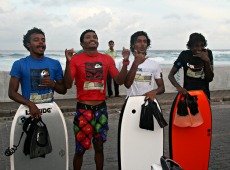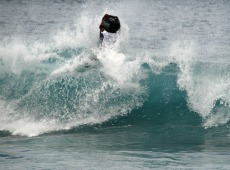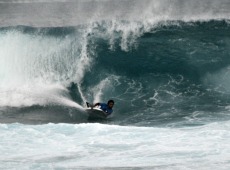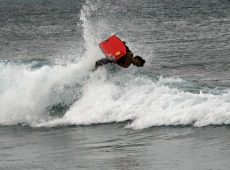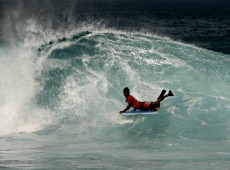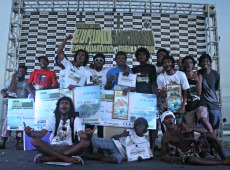The government-aligned Dhivehi Rayyithunge Party (DRP) has said it will stand in a coalition with President Dr Mohamed Waheed during September’s elections as part of an agreement to strengthen its position in the political “middle-ground”.
Party spokesperson Ibrahim Shareef told Minivan News that with the DRP battling for space in the middle ground between the Progressive Party of Maldives (PPM) and the opposition Maldivian Democratic Party (MDP), it had opted to form as broad a coalition as possible to try and ensure a second round electoral victory.
“No party in the country will get more than 35 percent of the vote during the first round, even the MDP which remains the biggest single party,” he said, adding that the party continued to rule out working with the PPM beyond the present government.
Speaking following the coalition announcement today, the MDP accused the DRP and its current leader – one-time presidential candidate MP Ahmed Thasmeen Ali – of committing political “suicide” by continuing to side with a government the opposition party’s supporters accuse of coming to power in a “coup d’etat” last year.
Earlier this year the government-aligned Dhivehi Qaumee Party (DQP) and religious conservative Adhaalath Party both announced their intentions to join a coalition with President Waheed’s Gaumee Ithihaad Party (GIP).
Both the DQP and GIP are small political parties currently facing potential dissolution for lacking the minimum requirement of 10,000 members as stipulated in the recently passed Political Parties Act.
“Too hardline”
DRP spokesperson Shareef said today that competing directly against the GIP or other government-aligned parties like the Jumhoree Party (JP) would only allow the PPM – as the country’s second largest party in terms of MPs – to emerge as a front runner during a potential run-off vote.
He went on to accuse the PPM, which was formed from a breakaway sections of DRP supporters loyal to former President Maumoon Abdul Gayoom, as being “too hardline” to benefit the Maldivian people.
“This is a party to belongs to one family, or a supreme leader,” Shareef said, referring to Gayoom, who previously formed the DRP in 2005 during his 30 year rule of the country.
He added that even with the MDP presently being the country’s largest party, it was not itself capable of obtaining even 35 percent of the vote – a 51 percent share is required to form a government.
Shareef said considering the MDP’s likely support, being part of a coalition gave the DRP a better chance of securing election during a second round of voting, adding that increased polarisation between the country’s two largest parties during the last seven years was “leading the country nowhere”.
“There is no chance of a first round victory, so unless we have a strong coalition, those of us in the political middle ground would be forced to support the MDP,” he claimed.
Shareef added that no demands has so far been made by the party with regard to securing senior cabinet or government positions such as the vice presidency, should the coalition be voted into power.
“It would be nice to have [the vice presidential position], but we are not asking for cabinet posts or a certain share of ministers, we believe that unity is needed right now,” he claimed.
Since the controversial transfer of power that on February 7, 2012, which saw former President Mohamed Nasheed resign from office following a mutiny by sections of the police and military the DRP has been part of a coalition government with other former opposition parties including the PPM, JP, DQP and the Adhaalath Party.
Asked whether a similar coalition of parties similar to those already serving under the current administration would be electable, Shareef said he believed President Waheed had served the country admirably to hold so many rival political figures together.
“When you have a government that comes into power by accident it will always be a lame duck [administration],” he claimed. “President Waheed has done an admirable thing and filled a political vacuum.”
After the coalition agreement was announced today, DRP Deputy Leader MP Rozaina Adam took to social network service Twitter to accuse both the PPM and the MDP of “desperation” by trying to disparage the party’s decision to enter a coalition with the president.
The whole political equation changed today. PPM n MDP feeling extremely threatened n rightly so. U should be. Thus we forgive ur desperation
— Rozaina Adam (@Roxeyna) May 12, 2013
Political “suicide”
However, MDP MP and Spokesperson Hamid Abdul Ghafoor argued that September’s election would be divided along the lines of those voting against a government deemed to have come to power in a “coup d’etat” last year and those in support of the present administration.
“This an an election based on recovering from a coup government,” he said. “The election will be along these lines.”
Ghafoor claimed that by opting to stay aligned with the current government of President Waheed, DRP Leader MP Thasmeen had committed political “suicide”.
“We have been travelling all over the country as a party recently, and we have seen lots of concern that this coup administration has ruined the economy and stalled investment projects. We are will be lucky if we can avoid [sovereign] default before the election is held,” he said.
“Our candidate [former President Mohamed Nasheed] has previously summarised it well. You have the MDP making three foot strides, the PPM making half foot strides and the present government going backwards,” he said.
Ghafoor also said he had met a large number of local councilors from government-aligned parties during his travels who had expressed concern at a perceived focus by the current administration to centralise power as much as possible.
Speaking to Minivan News last month, former Home Minister Dr Mohamed Jameel Ahmed, now standing as running mate to PPM presidential candidate Abdulla Yameen, said that the political landscape since the country’s first multi-party elections in 2008 necessitated a willingness to share power more than ever with “major” political parties.
“We have to recognise that the PPM and the MDP are the two major political forces in the country capable of winning elections. Hence, if the governing coalition desires to forge an alliance, it cannot realistically exclude the PPM from any such move. Whether a coalition, inclusive of the PPM can be realised prior to the elections is possible or not, we cannot alienate major political parties in an election,” he said at the time.
